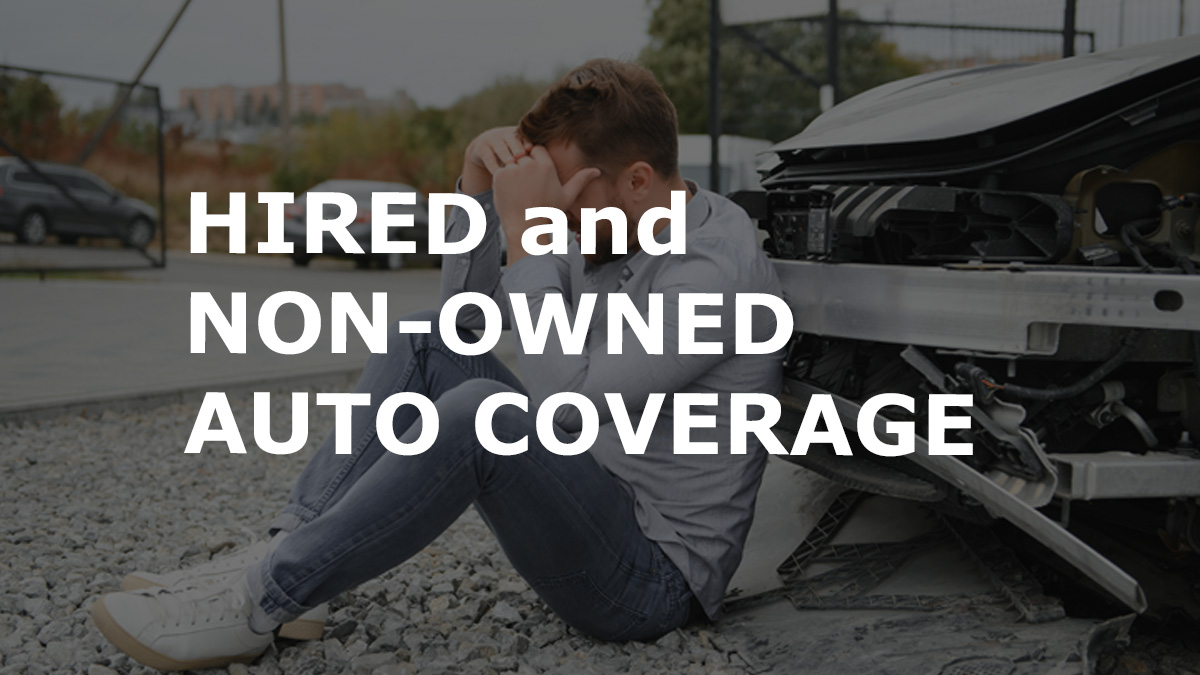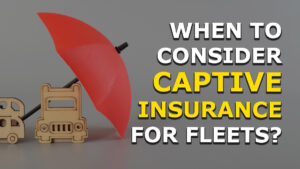While business should already have liability insurance, property insurance, business auto insurance, and more, there are still common gaps in coverage that could cause big claims and unnecessary litigation.
For example, your business auto coverage does not cover vehicles being operated for your business that you are renting or don’t own. While the risk lies with the employee or contract worker, leftover damages fall to the company.
To protect your business, additional insurance is needed called Hired and Non-Owned Auto (HNOA) coverage.
Let’s look at what these covers, how it works, and tips to further protect your business.
Examples of why HNOA coverage is important
Many businesses use vehicles they don’t own in their day-to-day operations. This includes rental vehicles (“hired”) as well as vehicles owned by their employees (“non-owned”).
Scenario: Hotshot carrier where all your drivers are contracted and do not own any trucks.
Scenario: Employee using personal vehicle to run business errands, such as going to the bank or the post office once a week.
Scenario: Sales or customer service employees given an allowance for personal vehicle use in lieu of a company vehicle.
What does “Hired Auto” mean?
Hired autos are vehicles your business leases, hires, rents, or borrows (not from your employees, partners, or household members) that are used while doing business.
If this rented vehicle causes an accident while doing work-related business, hired auto insurance coverage helps cover the costs if a lawsuit was filed against your business due to the accident.
What does “Non-Owned Auto” mean?
Non-owned autos are vehicles owned by employees, partners, or household members and used for work-related business.
While state law differs, generally if an employee is in the course of employment when an accident occurs and they are negligent, the employer is responsible.
The driver’s auto insurance would kick in first, then the non-owned insurance coverage would cover the remainder of the damages after the employee’s insurance is exhausted.
What is covered by Hired and Non-Owned Auto Insurance?
Basically, HNOA extends coverage of your business’ commercial auto insurance to vehicles that aren’t owned by your business but are used for work-related tasks.
HNOA provides liability coverage for property damage and bodily injuries caused by you or your employees while driving for work, including settlements or judgments, attorney fees and other court costs that arise because of an auto accident for which you or an employee is responsible.
The coverage would apply if your business were sued for negligence due to an automobile accident. However, it does not pay for collision damages to the hired or non-owned vehicle.
In the event of an accident, you could be found negligent if:
- The employee’s insurance has lapsed,
- The employee only carries the minimum limits required by the state and the amount of damages exceeds this limit,
- The employee’s vehicle is not properly maintained,
- The employee’s driving record is below standard,
- Your company does not have any fleet controls or policies in place to address these issues with employee vehicles that are used for business purposes
Tips to protect your business
While this extra coverage is important, are you doing everything as a business to protect yourself from litigation?
Here are 7 tips to protect your business further:
- Verify that your employees, who frequently drive for work-related purposes, have appropriate coverage limits on their personal insurance and that it is not lapsed.
- Verify if an employee’s vehicle involved in a business-related accident is properly maintained.
- Ensure that employees understand that they are representing the company while they are driving for work.
- Set strict requirements for minimum driver age and years of experience.
- When hiring drivers: make sure they have a valid driver’s license, check their Motor Vehicle Record (MVR) for accidents, infractions and other behind-the-wheel behaviors, and consider pre-employment drug tests.
- Check MVRs annually to confirm all drivers maintain safe driving records.
- Establish clear safe driving guidelines such as require all drivers to use safe speeds, keep a safe following distance, observe courteous driving behaviors and refrain from distracted driving (prohibit cellphone use unless the driver is safely off the road).
CNS Insurance can help
If you are interested in this type of coverage, please call CNS Insurance at 717.625.0066 or email us at info@cnsinsures.com.
Need a full Commercial Truck Insurance quote? Expedite the quoting process by filling out a Complete Insurance Quote with all your vehicle and driver information.






